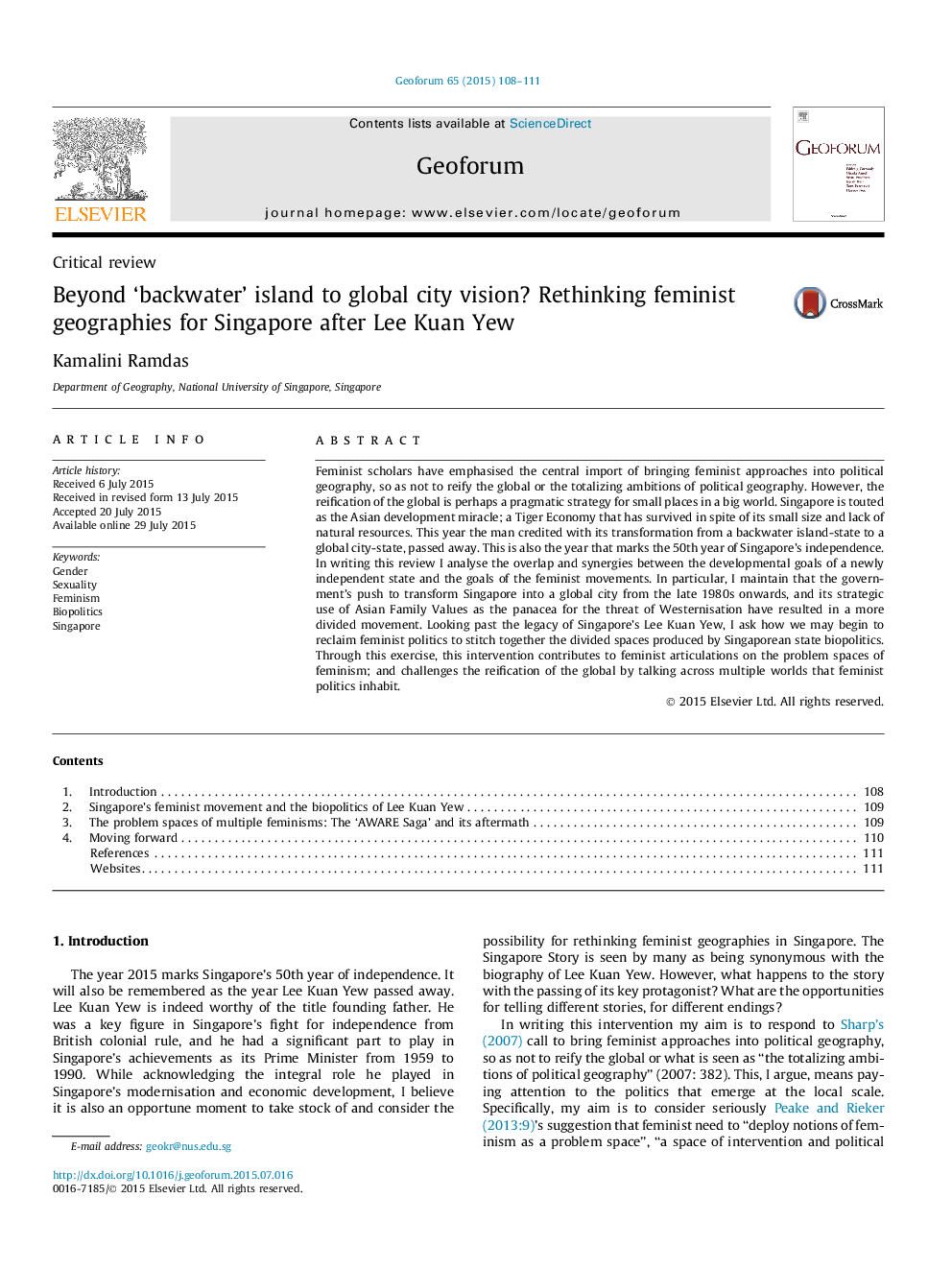| Article ID | Journal | Published Year | Pages | File Type |
|---|---|---|---|---|
| 5073814 | Geoforum | 2015 | 4 Pages |
Feminist scholars have emphasised the central import of bringing feminist approaches into political geography, so as not to reify the global or the totalizing ambitions of political geography. However, the reification of the global is perhaps a pragmatic strategy for small places in a big world. Singapore is touted as the Asian development miracle; a Tiger Economy that has survived in spite of its small size and lack of natural resources. This year the man credited with its transformation from a backwater island-state to a global city-state, passed away. This is also the year that marks the 50th year of Singapore's independence. In writing this review I analyse the overlap and synergies between the developmental goals of a newly independent state and the goals of the feminist movements. In particular, I maintain that the government's push to transform Singapore into a global city from the late 1980s onwards, and its strategic use of Asian Family Values as the panacea for the threat of Westernisation have resulted in a more divided movement. Looking past the legacy of Singapore's Lee Kuan Yew, I ask how we may begin to reclaim feminist politics to stitch together the divided spaces produced by Singaporean state biopolitics. Through this exercise, this intervention contributes to feminist articulations on the problem spaces of feminism; and challenges the reification of the global by talking across multiple worlds that feminist politics inhabit.
